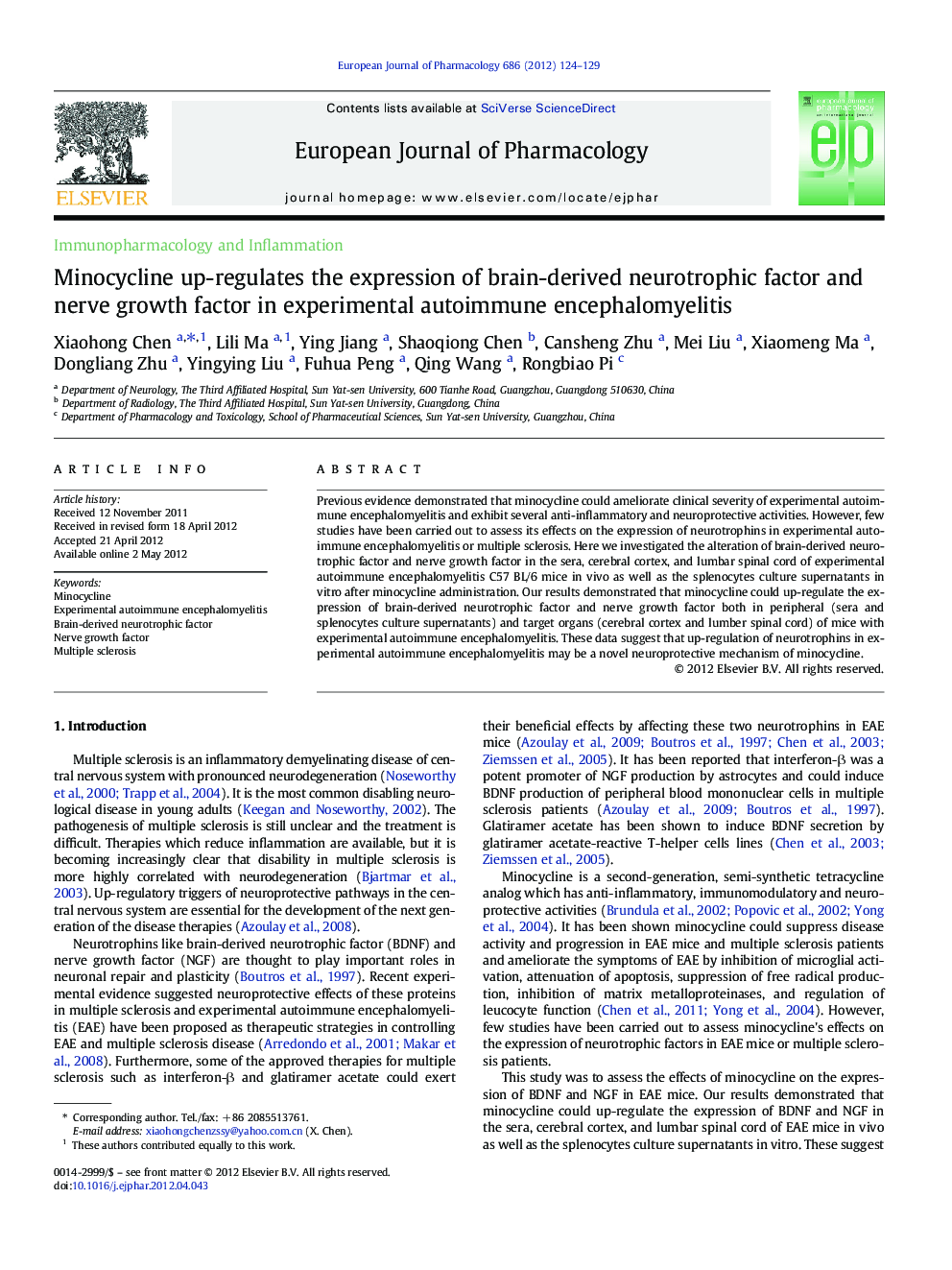| Article ID | Journal | Published Year | Pages | File Type |
|---|---|---|---|---|
| 5829388 | European Journal of Pharmacology | 2012 | 6 Pages |
Abstract
Previous evidence demonstrated that minocycline could ameliorate clinical severity of experimental autoimmune encephalomyelitis and exhibit several anti-inflammatory and neuroprotective activities. However, few studies have been carried out to assess its effects on the expression of neurotrophins in experimental autoimmune encephalomyelitis or multiple sclerosis. Here we investigated the alteration of brain-derived neurotrophic factor and nerve growth factor in the sera, cerebral cortex, and lumbar spinal cord of experimental autoimmune encephalomyelitis C57 BL/6 mice in vivo as well as the splenocytes culture supernatants in vitro after minocycline administration. Our results demonstrated that minocycline could up-regulate the expression of brain-derived neurotrophic factor and nerve growth factor both in peripheral (sera and splenocytes culture supernatants) and target organs (cerebral cortex and lumber spinal cord) of mice with experimental autoimmune encephalomyelitis. These data suggest that up-regulation of neurotrophins in experimental autoimmune encephalomyelitis may be a novel neuroprotective mechanism of minocycline.
Keywords
Related Topics
Life Sciences
Neuroscience
Cellular and Molecular Neuroscience
Authors
Xiaohong Chen, Lili Ma, Ying Jiang, Shaoqiong Chen, Cansheng Zhu, Mei Liu, Xiaomeng Ma, Dongliang Zhu, Yingying Liu, Fuhua Peng, Qing Wang, Rongbiao Pi,
